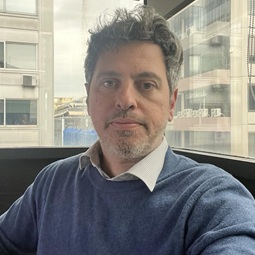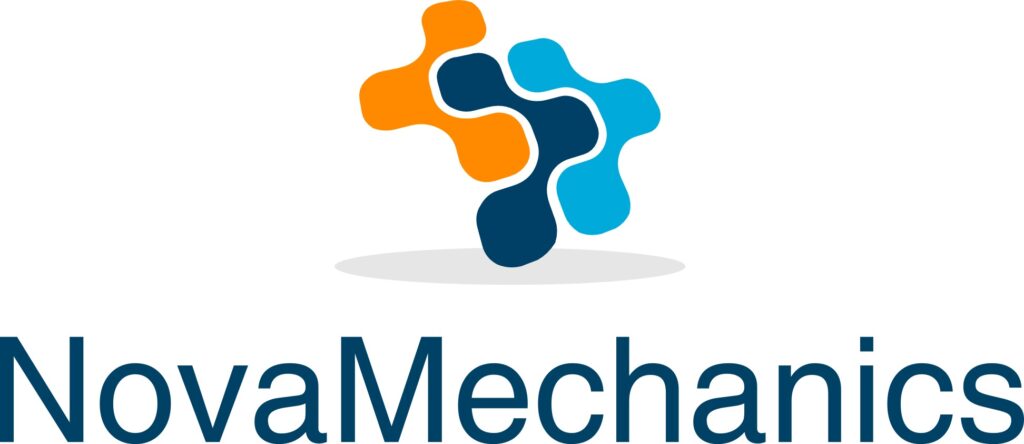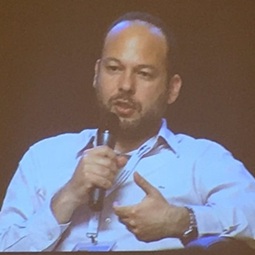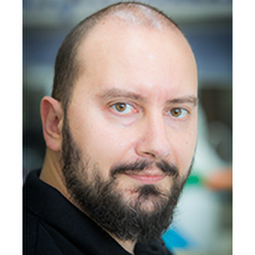Colleagues working on the project
Dr. Antreas Afantitis is a highly experienced and accomplished researcher and project coordinator with expertise in cheminformatics, bioinformatics, and nanoinformatics. His extensive scientific work has been published in over 100 original research articles (including 3 Nature Nanotechnology articles), earning him an h-index of 38. Dr. Afantitis is included in the World’s Top 2% Scientists ranking from Stanford University (2022). As a Director at NovaMechanics Ltd, he has led the development of advanced IT systems, such as databases, web services, and scientific software for cheminformatics, bioinformatics, nanoinformatics, modeling, simulation, and big data analysis. Dr. Afantitis has been instrumental in creating computational infrastructures at national and European levels, supporting the growth of new scientists. As a Principal Investigator with NovaMechanics, he has participated in over 30 international research projects. His experience in product development is exemplified by his work on the Isalos Analytics Platform, Enalos+ KNIME nodes, Enalos Cloud Platform, and Enalos Suite. Currently, Dr Afantitis coordinates the nanoinformatics projects NanoSolveIT and CompSafeNano H2020 projects.

Andreas Tsoumanis
PhD
Dr. Andreas Tsoumanis received his BSc (2003) from Computer Engineering and Informatics Department of University of Patras, MSc (2004) from the School of Informatics of City University London and his PhD (2009) in Chemical Engineering, Process Design & Systems, entitled “Modeling, Computational Analysis, and Design of Control Systems of Socio-Economics Systems: from Individual Interaction to the Macroscopic Behavior”, from the School of Chemical Engineering (NTUA). Then he worked as a Post-Doctoral Research Associate at the Department of Chemical and Biological Engineering of Princeton University (2010-2011). He has a strong scientific background in the field of computational analysis, modelling and simulation and his scientific work has been published in more than 18 peer reviewed journal and conference papers. Part of his research is devoted to developing the necessary modelling methods and tools to address the specific needs of complex systems, including complex microscopic systems and how those are influenced by the topology of the underlying network. To accomplish that he had to develop algorithms that create complex networks with specific features and simultaneously he had developed and used parallel algorithms for the simulations necessary for the analysis of emergent phenomena in complex microscopic stochastic systems. In his post-doctoral research, he focused on the analysis of evolving networks finding features that characterize different evolving network models. He has been involved in several IT projects dealing with the development of cloud platforms, standalone software, web-services and databases.
Dr. Konstantinos D. Papavasileiou is a senior researcher at NovaMechanics, specializing in molecular thermodynamics, materials modeling, biomolecular simulations, and the application of machine learning in computational chemistry. He holds a diploma in computer-aided chemistry from the University of Surrey, U.K., and a Ph.D. in theoretical/computational chemistry from the University of Ioannina, Greece. With extensive experience in classical simulations and quantum mechanical calculations, Dr. Papavasileiou’s work emphasizes the integration of machine learning techniques in drug discovery, particularly in predicting drug-target interactions. Utilizing the Isalos Analytics Platform, he has advanced methodologies for analyzing complex datasets, enhancing predictive modeling, and accelerating the identification of potential drug candidates. His collaborations with international research teams have resulted in over 40 publications in peer-reviewed journals, three co-authored book chapters, and numerous presentations at international conferences. His interdisciplinary research continues to push the boundaries of computational physical chemistry and biomolecular simulations. At NovaMechanics, he applies cutting-edge computational and machine learning techniques to tackle real-world challenges in drug development and discovery.


